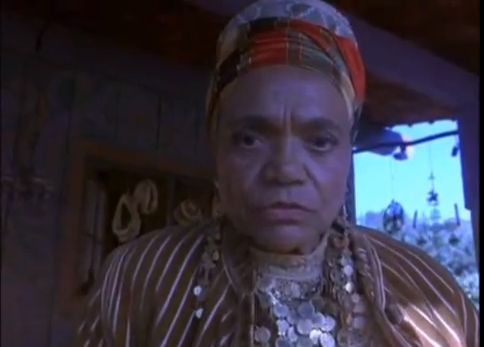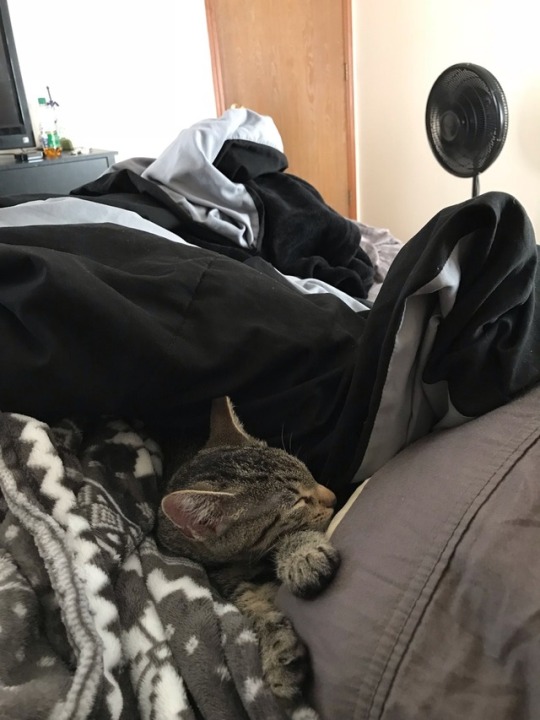Hey I'm Zach! I love manga and anime and will post a lot about that. I also love making new friends so message me anytime!
Don't wanna be here? Send us removal request.
Text
Worldbuilding Tips: The Five Visitors
You’ve done it. You’ve come up with an idea for your fantasy world, but right now it’s mostly curb appeal and decorations without much else. So, you have the skin and flavor of your fictional world, but what if you’re having a bit of trouble coming up with the meat needed to make your world juicy and delicious? Well, I have a little game that can help flesh out your world.
Imagine a ship or whatever other kind of vehicle arriving on the shores or outskirts of your fantasy land and from that vehicle emerges 5 people from our own mundane world: a historian, an economist, an anthropologist, a diplomat, and a cartographer. There are some other visitors, but these are going to be the most universally beneficial.
The Historian:
This person is going to be interested in the backstory of your world. They don’t need to know every minuscule detail (though they wouldn’t turn that much information down) and just a general overview would be much obliged. Many fantasy worlds such as Tolkien’s Middle Earth and Martin’s Westeros are far more rich and interesting due to the amount of effort put into crafting their world’s histories. If you’re stumped, look to real world history for inspiration. It doesn’t even need to come from the middle ages so long as it works for your story. You should be able to answer questions like: How long has the dominant civilization been around? What are the biggest defining moments in your world’s history? What things are common knowledge that every child is expected to learn (such as George Washington being the first president of the USA) and which stuff is known more by historians and social studies teachers? And as you’re discussing the rest of the visitors, think back on how the answers you give would impact the historical aspect.
The Economist:
You don’t have to know the exact cost of every single thing in your world, but have a good guess. Be able to at least have a scale of price. If someone can buy a loaf of bread for 13 of your world’s currency, but a house costs 17, that would mean that either that bread is very expensive, that house is very cheap, or each unit of your currency is equal to a lot of real world money. Whatever you use to refer to your currency, keep not only price scaling in mind, but economics. If you have a port city, there’s going to be a lot of merchants in that area. The first primary export you’re likely to see in such a port town would be seafood, but also keep in mind the things that are closet to that port, as well as the climate. Greece for instance is a very rocky and mountainous country, so while they can grow crops, they would not have been any match for medieval French Aquitaine, the crown jewel of medieval farming territory. It’s also worth remembering that food in the middle ages was far more valuable than it is today. There was an old saying that wheat is worth its weight in gold. It was southern France’s bountiful soil that caused it to become one of the richest and most coveted territories in medieval Europe. So, keep in mind where resources would come from and where they would need to go, as well as trade that would be useful. A seaside farming town might not have any good access to raw minerals, while a city in the frozen mountainous north might not be able to grow crops, but are bountiful in minerals. The correlation of supply and demand now opens a vital trade route between them. This becomes more complex when the topic of war comes into play. The kingdom that supplies your crops and food is at war with your oldest ally. Now there’s a dilemma between having enough food to feed your people, or betraying the trust of a long time friend. Now your world building can be used as a part of your drama and narrative tension. The economy also impacts culture. What is considered a display of wealth, or is a common status symbol? What are the living conditions of the poor, the working class, the rich, and the aristocrats? Is there upward mobility? In the middle ages, you were what you were for the most part, especially serfs: peasants tied to their land. It was illegal to leave your territory, but there was a saying in the middle ages that “city air makes you free” that once a serf made it to a city, they’d be free of the life they’ve escaped.
The Anthropologist:
Every society has a culture. The way they act, think, dress, believe, talk. It’s all impacted by culture. Beliefs tend to be tied either to what has come before, or based on the world as observed. While many modern fantasy pantheons are based on ancient Greece, it’s not the only model to live by. In a loose interpretation, religion in it’s earliest stages was a rudimentary science used to explain why things happened. A culture that developed along rivers, sea coasts, and other popular trade routes are far more likely to be diverse melting pots due to the frequent traffic of people coming and going, and the common sight of foreigners choosing to set down roots. Meanwhile, a more out of the way and isolated culture is far less likely to have widespread cultural diversity. Tying back into history, a country that has experienced a number of successful wars may tend to think of themselves as invincible, or may try to police the issues of other countries, assuming they’re always on the right side, or that they can’t be defeated. The same culture may ask a high price of any other culture that asks them for militaristic support. Ask what things your people value, be they material or abstract ideals. However, try to refrain from creating a Planet of Hats, a trope often seen in Star Trek and similar Sci-Fi shows and even some Fantasy stories where everyone of a single race all have mostly the same skills, interests, personalities, and roles in the global culture. This is also the time to start thinking about myths, legends, folk heroes, and historical people and events worth celebrating, as this may be when you start to craft holidays or celebrations. This could also lead into discussing religion, and the gods or lack there of that might be celebrated by your culture. How does your society reflect itself in art, music, literature, dance. Does the way someone dresses tell you something about their place in society? Some taboos come from simple logic. The reason it’s frowned upon to eat a cow in India is the same reason it’s immoral to eat horse in western culture. Both are beast of burden livestock worth a lot more alive than dead. Cows produce milk, a source of nutrients and health. Horses are strong and were used in just about everything from plowing fields to pulling entire families or communities a great distance. Horses even became status symbols, as even in modern culture, owning a horse or pony is still considered to be (largely) a snobby rich person thing. Understanding not only what your people believe, but even just a vague idea why they would believe it is a vital aspect.
The Diplomat:
As this landing party is your fantasy world’s first contact with our own reality. How would they react to the newcomers? If there’s more than one society in your world, how would each society, country, kingdom, race, etc. react to something completely foreign? Would they try to forge an alliance? Open trade negotiations? Declare war? Prepare a feast? How would they feel about the way we dress? act? talk? How would they react to different levels of progression in technology? Could an unbiased third party from our world help two feuding sides come to peace with one another? How would they feel about knowing of a world beyond their own? Are there actions or behaviors acceptable in our own society that are considered offensive to them?
The Cartographer:
Although it’s not necessary that all fantasy worlds have a fully designed map, it is a good idea to have at least a rough idea of where things are in relation to one another. This can tell you about climate, resources, wildlife, natural borders, natural disasters, food chains, and more. It’s worth at least taking a crash course in understanding how geographical biomes tend to be laid out in order to make your world feel more real. Some authors claim that a world map is the single most important feature, others say it’s not that important. Frankly, trust your gut based on the kind of world you have. You may need a map, you may not. It really depends on the size and scope of your world. For instance, with Disney’s
Zootopia
, the entire world doesn’t matter. The audience doesn’t need to know where in the world Zootopia is, or what climate or biome it’s in. Zootopia itself is the world being built, and the separate districts and biomes of the city explain the world that’s being focused on.
Secondary Visitors:
They may still be important to your world, but are less likely to be universally helpful to all people.
Biologist: if your world has creatures beyond those found in our real world, it may be worth exploring how their bodies work on a more scientific level in order to give more realistic weight to their supernatural abilities.
Linguist/Translator: If you feel compelled to come up with a language no matter how basic or complex, it may be worth while to consider the problems with communication. this may also extend to unique idioms, colloquialisms, and slang native to your fantasy world.
Teacher/Scholar: Regardless of whether or not there is a formal education system in place in your world, a teacher may be interested in how knowledge is passed down, and what information the culture might have that would be unknown to people of our world. Whether that’s how to keep a wild animal from charging you, to knowing how to forge a mineral that exists only in your world, being able to readily answer questions is generally considered to be a good thing.
Healer: There may be healing spells in your world, there may not, but most fantasy stories tend to involve either action or adventure, both of which tend to cause fights. And since fights tend to lead to injuries, it’s important to know what can and cannot be treated, and how readily available these healing abilities are to the public.
5K notes
·
View notes
Text
“But if you forget to reblog Madame Zeroni, you and your family will be cursed for always and eternity.”

4M notes
·
View notes
Photo

https://geekandsundry.com/the-complete-beginners-guide-to-playing-overlight-rpg-character-building/
The world of Overlight is chock full of bright colors, weird creatures, and kaleidoscopic fantasy. We’ve been having a blast exploring the world in our Overlight: Fractured Paradox series and hope that gamers have been playing the game and creating their own adventure across the different s…
84 notes
·
View notes
Text

Made me think of this pic I took when I first got this little squirt lol
Me waking up around 2 in the afternoon: “Ok I really should get up for the day”
*10 minutes later*






71K notes
·
View notes
Photo













v.2.3 of the Chained Ancient is here! Sporting several edits for balance and my personalized new theme, this class is back and better than ever!
Special thanks to @11paigebook for all the detailed feedback they provided!
PDF Version
Printer Friendly PDF Version
2K notes
·
View notes
Text
Sneaky Centaur
Currently working on a new D&D character. Thought I would make it a bit more roleplay so I went with a Centaur Rogue. Kind of an odd combination but I think it will be fun and my DM thinks it will be hilarious. Ready for many missed stealth rolls yet a riot of a time.
0 notes
Text
So im scrolling on twitter and saw that matt has put the baby bestiary to use

So i looks through the table of contents of said baby bestiary and indeed find the blink dog (look at first column, #14)

but also something else

M9 COULDVE HAD A MANTICORE CUB WITH THEM AND IM SO SAD
Bonus:
Matt responding to my tweet about it

Thanks Matt.
3K notes
·
View notes
Photo





Those Mercantile Tokens I’ve been working on just came out the art-oven, and you can download them for free below – there’s 177 in all!
I’d love to see what you create, so please share. :)
2K notes
·
View notes
Video
youtube
Sam Riegel’s VFX D&D Beyond ad (Now with VFX!)
IT’S HERE, AFTER 48 HOURS OF THIS HELL IT IS HERE
3K notes
·
View notes
Photo










The Way of the Avatar, a reworked Way of the Four Elements monk subclass based around the bending in Avatar the Last Air Bender. I don’t like how small the spells feel in a Way of the Four Elements monk, so I did some reworking and retouching to make it feel more punchy at lower levels and a lot more spell casting at higher levels. Let me know if you liked it, or plan to use it for your own game, as always, its free for use! If you want to throw some coin my way, support your local DM by donating to my Ko-Fi.
Art Credit: 3rd Image: Aaron Nakahara 5th Image: Jamie Ro
1K notes
·
View notes
Text
No that’s a Bender! Gender is the city that calls for aid in the writings of J.R.R. Tolkien!
What the fuck is a gender
60K notes
·
View notes









